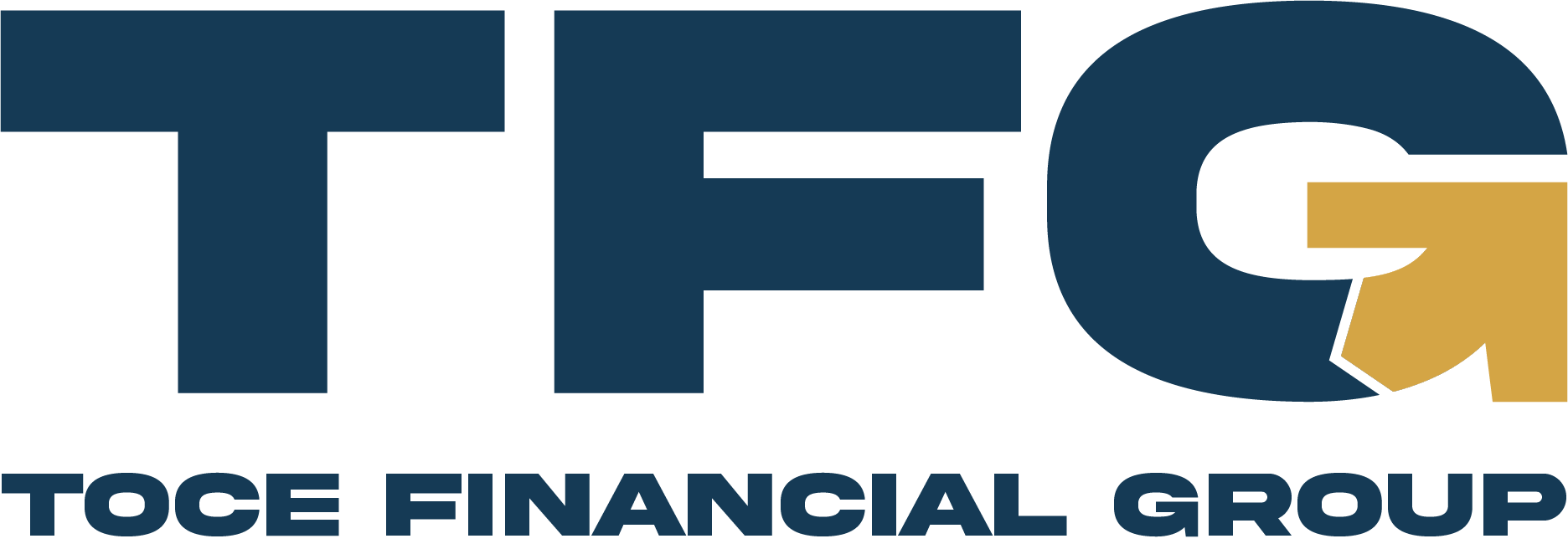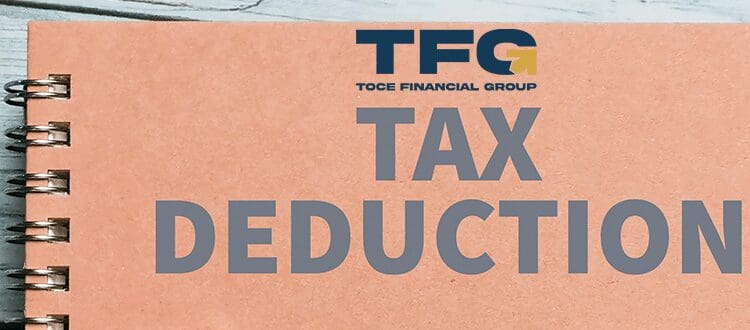Avoid Common Tax Deduction Mistakes: Smarter Tax Planning by Taxpayer Type
/
CategoriesTaxes
Don’t Let Deduction Mistakes Drain Your Future
Tax deduction mistakes are easy to make but costly to ignore. Whether you file your taxes solo, run a business, or already work with a CPA, the truth is most Americans are still missing major tax planning opportunities.
At Toce Financial Group, we see these gaps all the time. And while the rules aren’t the same for everyone, the solution is the same: targeted strategy, ongoing optimization, and clarity that goes beyond tax prep season.
Below, we break down the most common deduction mistakes and how to fix them in a way that matches your reality. Skip to the section that fits your situation or explore them all to prepare for what’s next.
Universal Tax Planning Mistakes (and How Everyone Can Fix Them)
These apply to all taxpayer types. Master these first.
Clean separation of accounts
Combining personal and business expenses is the number one audit red flag. Keep checking and credit card activity separated.
Combining personal and business expenses is the number one audit red flag. Keep checking and credit card activity separated.
Professional bookkeeping
Weekly coding protects deductions tied to QBI, basis, and capital loss. You don’t need to DIY your books, but you do need a clean ledger.
Weekly coding protects deductions tied to QBI, basis, and capital loss. You don’t need to DIY your books, but you do need a clean ledger.
Annual IRS transcript pull
See what the IRS sees. Confirm all W-2s, 1099s, and estimated tax payments match your records. Free, fast, and incredibly helpful.
See what the IRS sees. Confirm all W-2s, 1099s, and estimated tax payments match your records. Free, fast, and incredibly helpful.
Top Deduction Mistakes for DIY Tax Filers
“I’ve got a W-2, maybe a side hustle, and I file myself.”
Mistake: Trying to itemize when the standard deduction is more valuable
Most itemized deductions like SALT, medical expenses, and mortgage interest won’t beat the $30,400 standard deduction for married couples in 2025. Don’t waste energy hunting deductions that won’t apply.
Most itemized deductions like SALT, medical expenses, and mortgage interest won’t beat the $30,400 standard deduction for married couples in 2025. Don’t waste energy hunting deductions that won’t apply.
Fix: Maximize “above-the-line” options:
- Traditional or Roth IRA contributions
- HSA if you’re on a high-deductible health plan
Mistake: Not optimizing your tax software
Settings matter. Tell the system you’re claiming the standard deduction to avoid irrelevant prompts. Use the expense tracker for gig income to capture deductions that reduce self-employment tax.
Settings matter. Tell the system you’re claiming the standard deduction to avoid irrelevant prompts. Use the expense tracker for gig income to capture deductions that reduce self-employment tax.
Where Business Owners Go Wrong with Tax Planning
“Should I stay a sole proprietor, file as an S-corp, or something else?”
Mistake: Rushing into an S-Corp too early
An S-corp can save self-employment tax, but only if your net profit consistently exceeds $60,000 to $70,000. Otherwise, the extra paperwork and payroll costs may not be worth it.
An S-corp can save self-employment tax, but only if your net profit consistently exceeds $60,000 to $70,000. Otherwise, the extra paperwork and payroll costs may not be worth it.
Mistake: Skipping key acronyms like QBI or SE Tax
-
QBI (§199A): Worth 20 percent of qualified business income. Still applies to S-corp owners.
-
SE Tax: 15.3 percent on sole-prop earnings. An S-corp splits this between salary and K-1 profit.
-
Accountable plan: Lets you reimburse yourself for home office, mileage, and more, while keeping those off your W-2.
Fix:
-
Hire a bookkeeper to code transactions weekly
-
Use completely separate accounts for business spending
-
Schedule an entity review before November each year
Tax Strategy Errors High-Income Families Make (Even with a CPA)
“We earn $400,000 to $800,000 and already max the 401(k). What’s next?”
Mistake: Thinking you’ve already maxed out tax planning
Most CPAs focus on filing and compliance, not optimization. But advanced strategies can still yield five-figure savings annually.
Most CPAs focus on filing and compliance, not optimization. But advanced strategies can still yield five-figure savings annually.
Layer 1 – Contribution ceilings
-
Mega backdoor Roth 401(k): Up to $69,000 if your plan allows after-tax contributions
-
Cash-balance plan: Especially powerful for business owners in their 40s or 50s seeking large deductions
Layer 2 – Investment-based deductions
-
Tax-loss harvesting (TLH): Offsets gains plus $3,000 of ordinary income, and unused losses carry forward
-
Roth conversions in low-income years: Use gap years wisely
-
Asset location: Keep tax-inefficient assets in IRAs, growth assets in Roth accounts
Layer 3 – Timing and bunching
-
Pair TLH with charitable giving through donor-advised funds to reduce AGI
-
Use a January-to-January Roth conversion window for safe harbor compliance
Your Tax Plan Should Evolve With Your Financial Life
The tax code isn’t written for clarity. It’s written for complexity. But that complexity shouldn’t stop you from keeping more of what you earn. At Toce Financial Group, we work across all three lanes: W-2 professionals, entrepreneurs, and high-income households to make sure your tax strategy evolves with your income and goals. From IRS transcript reviews to Roth conversion windows, we help you catch what others miss.
Ready to plug the leaks and reclaim dollars?
One focused conversation could make a world of a difference, so get started by filling out the form on tocefinancial.com today!
Q: What are the most common tax deduction mistakes?
A: Assuming ineligible expenses are deductible, failing to document properly, and missing contribution deadlines are among the most common errors for all types of taxpayers.
A: Assuming ineligible expenses are deductible, failing to document properly, and missing contribution deadlines are among the most common errors for all types of taxpayers.
Q: Should I form an S-corp to save on taxes?
A: It depends on your net profit and whether you can meet IRS requirements for reasonable salary and payroll. A strategic entity review can help decide.
A: It depends on your net profit and whether you can meet IRS requirements for reasonable salary and payroll. A strategic entity review can help decide.
Q: Do high-income earners still benefit from tax planning if they already have a CPA?
A: Absolutely. Most CPAs focus on tax filing, not year-round strategy. Financial planners help identify additional opportunities for optimization.
A: Absolutely. Most CPAs focus on tax filing, not year-round strategy. Financial planners help identify additional opportunities for optimization.
Q: How can I stay ahead of tax deadlines and maximize deductions?
A: Use a calendar to track dates, review your expenses quarterly, and work with a planning-first firm that keeps your entire financial picture in view.
A: Use a calendar to track dates, review your expenses quarterly, and work with a planning-first firm that keeps your entire financial picture in view.

